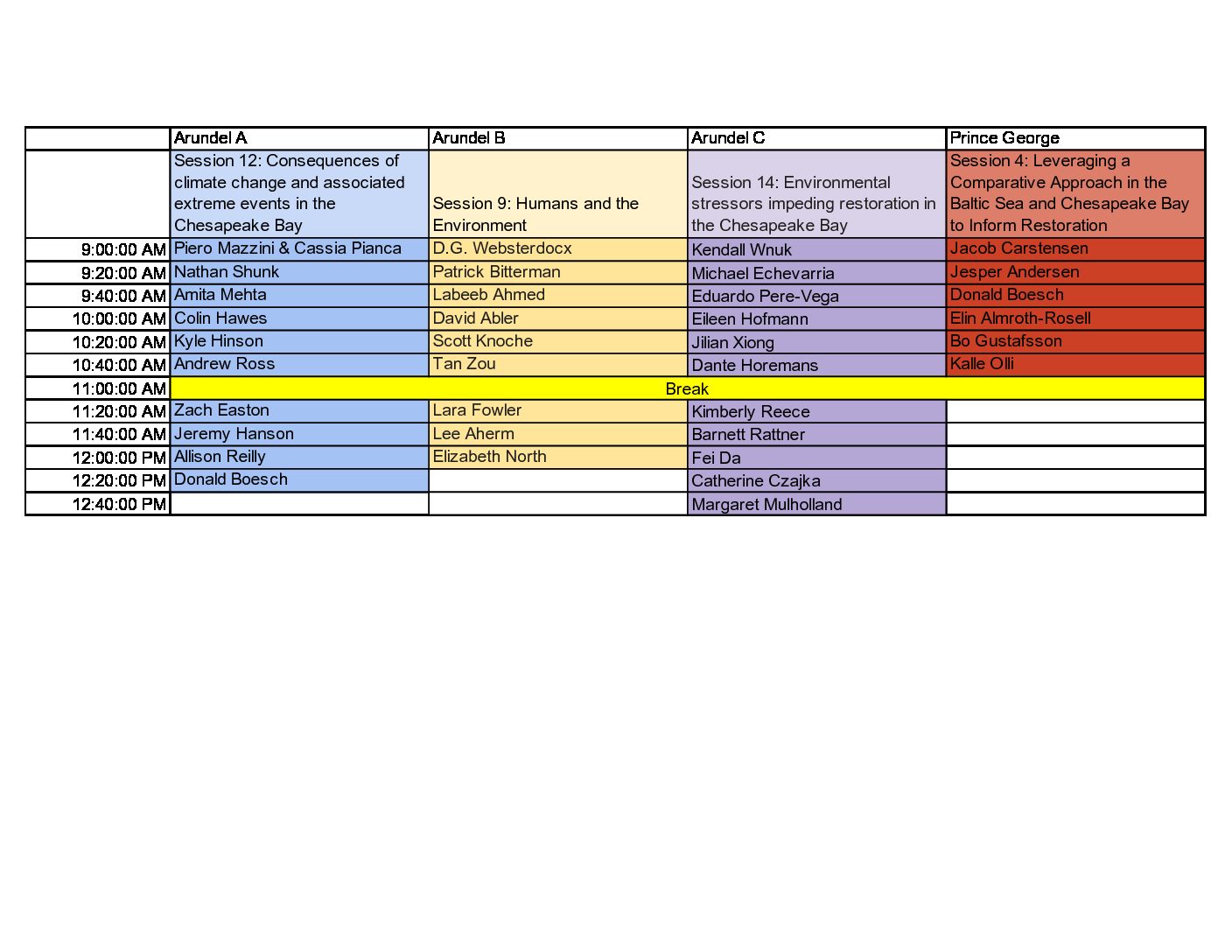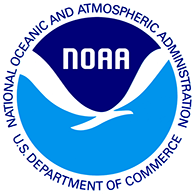Welcome to the Chesapeake Community Research Symposium 2022!
The Chesapeake Community Modeling Program convened the 2022 edition of our biennial symposium June 6-8, 2022 in Annapolis, Maryland and online. Check out the Symposium statistics below.
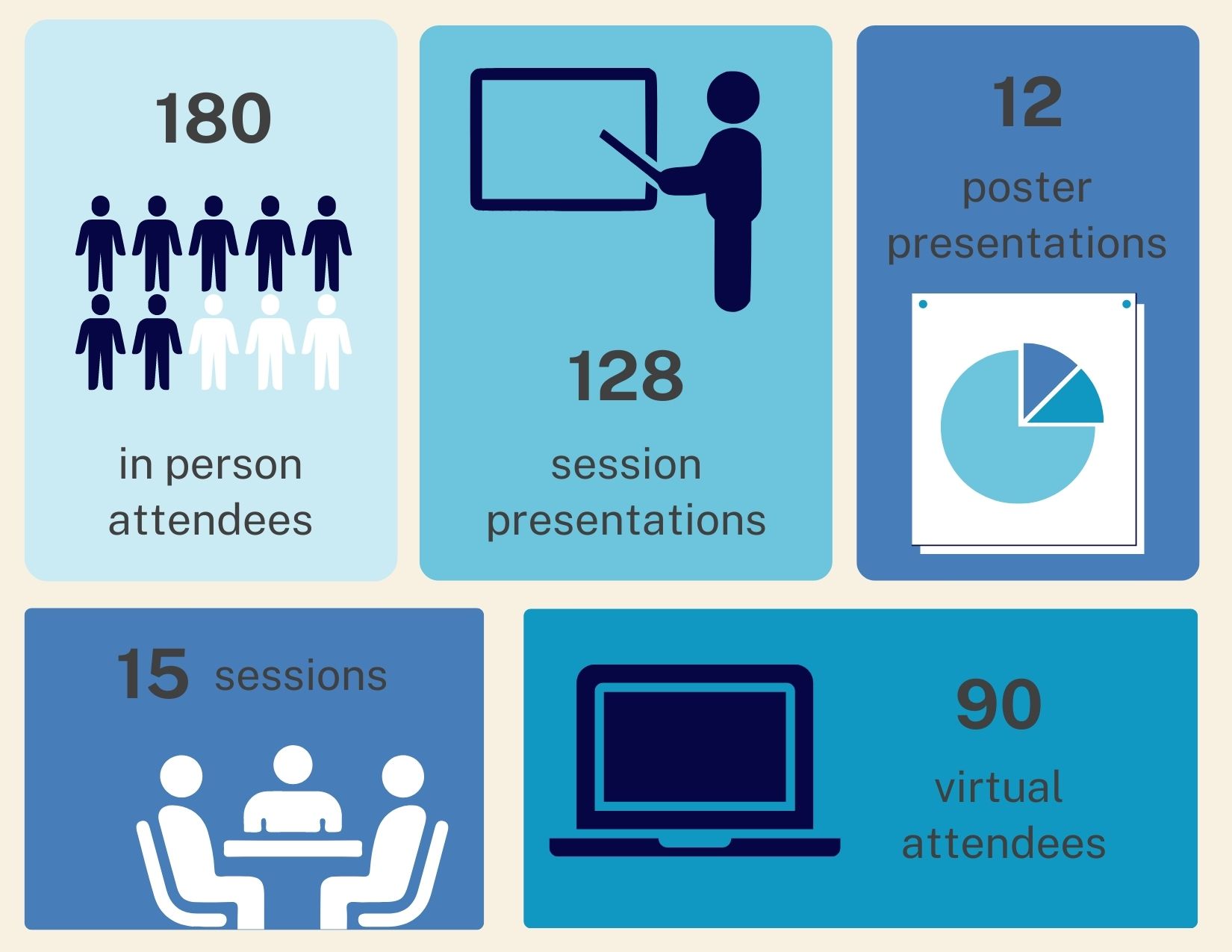
Scope and Aims
Significant progress has been made toward restoring Chesapeake Bay water quality and living resources. This progress includes the achievement of the 2025 goals for nitrogen and phosphorus pollutant load reductions collectively from hundreds of Chesapeake Bay watershed municipal and industrial wastewater treatment facilities a decade early. In addition, trends in recent years suggest that the summertime anoxic volume (i.e., dead zone) is decreasing and submerged aquatic vegetation has shown signs of recovering. However, restoration efforts face significant challenges as we enter the third decade of the 21st century. Perhaps the most daunting future challenge is maintaining progress in the face of a changing natural and human environment. Globally influenced changes in regional weather patterns and sea level rise are affecting temperature, watershed dynamics, groundwater processes, estuarine hydrodynamics, biogeochemistry, and ecology. In addition, increasing human population in the watershed continue to influence stressors that will interact with the effects of climate change and sea level rise. Moreover, there is a pressing need to consider the effects that changing environmental conditions have on higher trophic levels and ecosystem services which, until recently have received considerably less attention than submerged aquatic vegetation and benthic filter feeders.
Background
By bringing together managers, scientists, and stakeholders for a series of plenary talks, panel discussions, and special sessions, the 2022 Chesapeake Community Research Symposium will not only highlight the progress that has been made toward restoring the Chesapeake Bay and enhancing coastal community resilience, but will also address future challenges to maintaining this progress in the face of our changing human and natural environment.
PROGRAM
SESSIONS
There were 16 special sessions for the 2022 Chesapeake Community Research Symposium. You can explore each of these sessions below.
2022 GUARDIAN AWARD NOMINATIONS
History: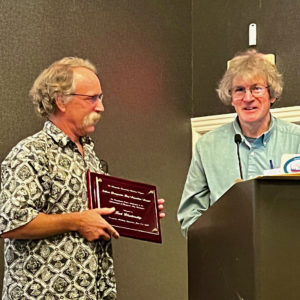 The “Sellner Chesapeake Guardian Award” was first presented to Dr. Kevin Sellner at the 2014 Chesapeake Modeling Symposium for “Exceptional Service Dedicated to the Advancement of Community Modeling in the Chesapeake Bay Region”. The CCMP has established this award in Dr. Sellner’s honor in appreciation for his more than 30 years of research, guidance and service to the Chesapeake Bay research, management and policy maker communities. Subsequent awards have been given to Karl Blankenship and Dr. Marjorie Friedrichs.
The “Sellner Chesapeake Guardian Award” was first presented to Dr. Kevin Sellner at the 2014 Chesapeake Modeling Symposium for “Exceptional Service Dedicated to the Advancement of Community Modeling in the Chesapeake Bay Region”. The CCMP has established this award in Dr. Sellner’s honor in appreciation for his more than 30 years of research, guidance and service to the Chesapeake Bay research, management and policy maker communities. Subsequent awards have been given to Karl Blankenship and Dr. Marjorie Friedrichs.
ADDITIONAL WORKSHOP
Getting Buying-In: Utilizing Effective Communications to Nurture Trust and Confidence in Non-Point Source Modeling for a Wary Public
Workshop Lead(s): Loretta Collins, University of Maryland; Rachel Felver, Alliance for the Chesapeake Bay; Jackie Pickford, Chesapeake Research Consortium
When: June 7th, 4-6 PM
* In person attendance required
Modeling is abstract and often complex. Modeling the dynamics of the 64,000 square mile Chesapeake Bay watershed is no exception. For example, agricultural stakeholders are often not satisfied with how modeling attempts reflect sub-watershed level land management, and thus subsequent model outputs in terms of nutrient and sediment load. For many of the stakeholders in the Bay watershed, water quality monitoring data resonates most clearly as proof that management actions are resulting in measurable changes. Therefore, there is great interest in expanding the use of monitoring at the sub-watershed and local levels. Where the logistics of expanded and/or localized monitoring are insurmountable, well-designed modeling can fill in the gaps.
However, if our stakeholders are not convinced that the Chesapeake Bay Watershed Model is accurately capturing what happens on the ground, then trust in established pollutant load reduction goals and the estimated progress toward meeting those goals diminishes. Although the Chesapeake Bay Watershed Model is meant to be a tool to make informed decisions on how to invest limited resources, it can become a roadblock to real-world progress if confidence is eroded to the point of inattention by those with discretion to fund best management practices and those charged with implementing them.
This workshop will bring together scientists and modeling experts for a candid discussion around the challenges and successes of communicating to those stakeholders expected engage in actions to reduce non-point pollutant loads. Additionally, it will identify strategies on how to improve buy-in from those stakeholders, and the public and private organizations that are fundamental to achieving water quality goals. Participants should come prepared to discuss their communications challenges and be open to learning new methods in how to reach their target audiences.
SCHEDULE
The Chesapeake Community Research Symposium 2022 took place over June 6-8, 2022.
JUNE 6th
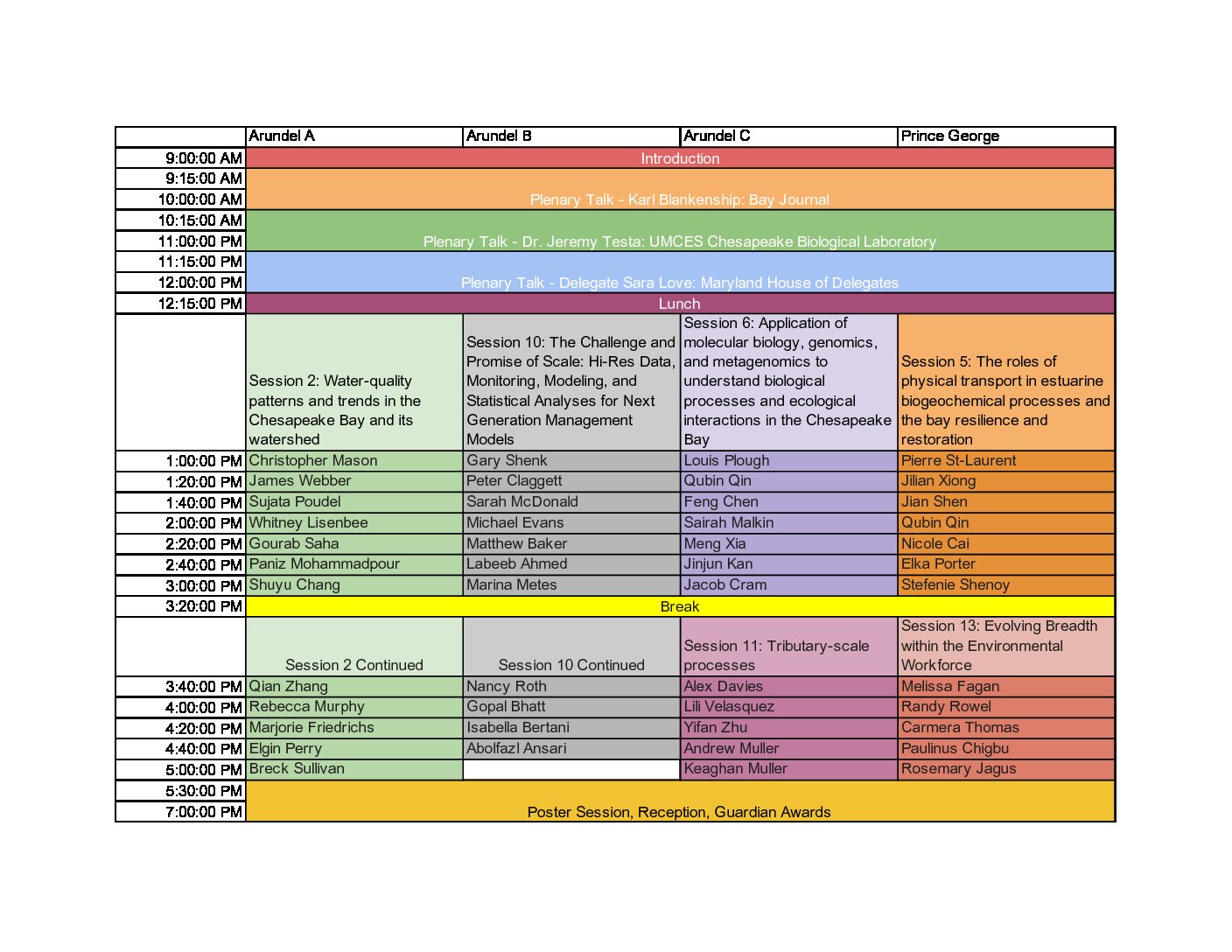
JUNE 7th
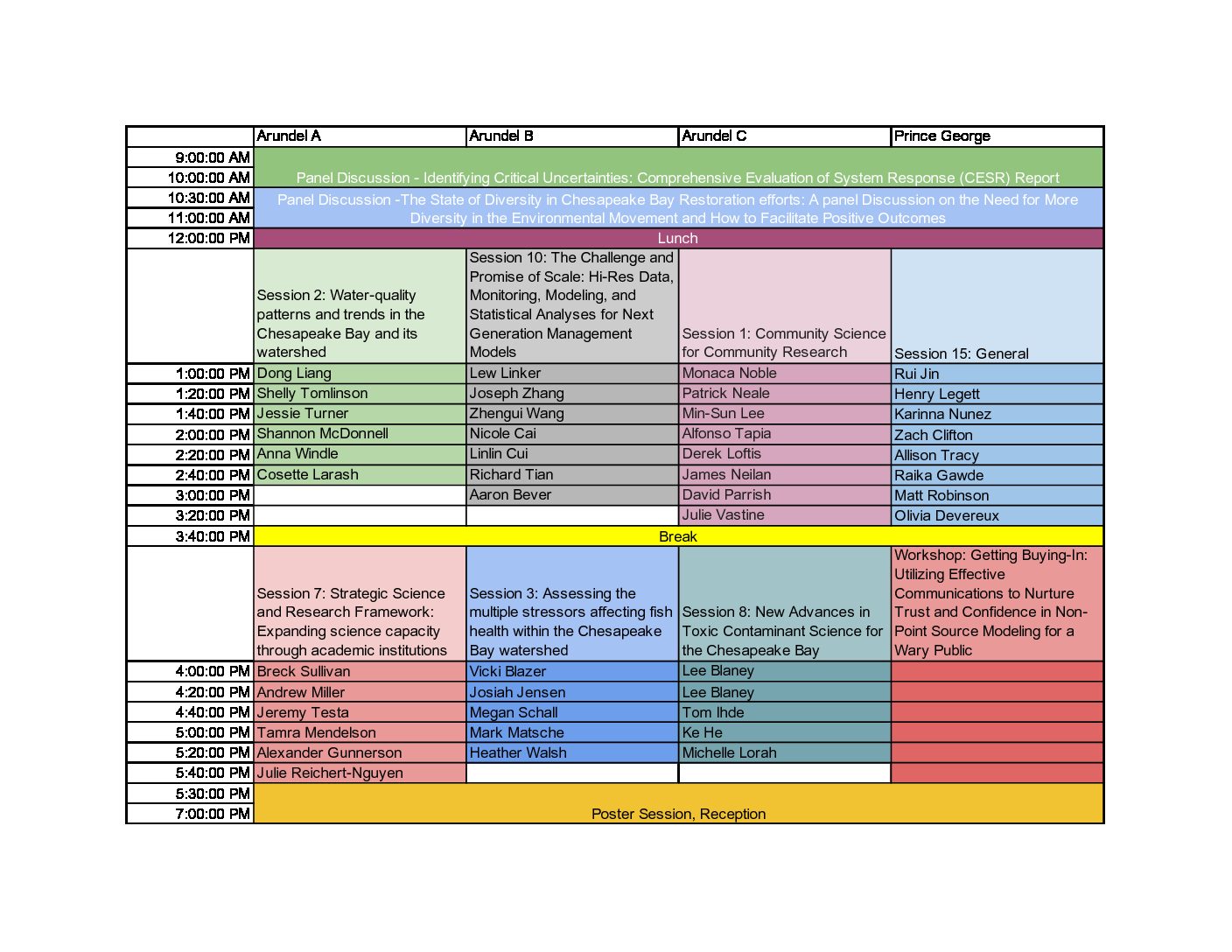
JUNE 8th
